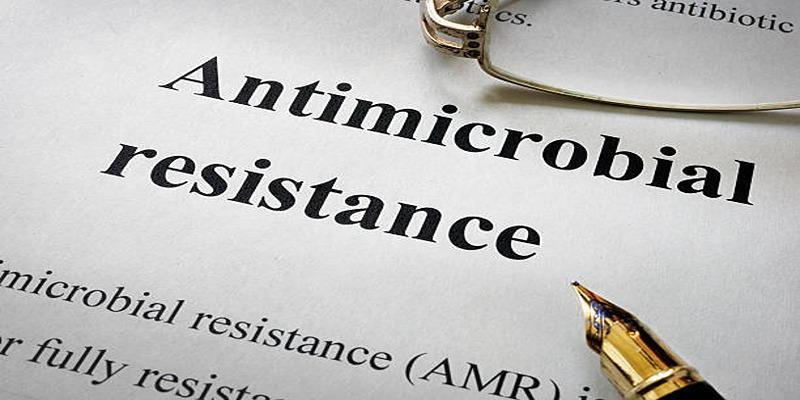Have you ever had an infection that required antibiotics to treat? Most of us understand how important these medications are. But did you know that sometimes the bacteria causing infections can become resistant to antibiotics? This is known as antimicrobial resistance. How does it happen, and what can we do to prevent it? Let’s break it down and make it easy to understand.

Antimicrobial resistance results from the gradual transformation of germ species, for example, bacteria viruses fungi or parasites no longer affected by medicines that were previously effective for them to die or grow slower. So they learn to escape medicines that were supposed to get rid of them. It is becoming more and more infectious and can cause increased illness duration and even death in some cases, as well as additional doctor visits.
You might be wondering, "How does this happen?" Well, it is the way in which germs survive after adaptation by us. It should be noted that there is a survival mode by which a germ adapts in order to live against medicines that we humans use. Therefore, some of those medicines may not even be strong enough anymore against some infections.
You might be wondering why antimicrobial resistance happens in the first place. Well, here are some of the major reasons:
The reason for all this is primarily regarding the excessive or incorrect use of antibiotics. For example, consuming antibiotics for a viral infection such as colds or flu, which does not treat, gives space for bacteria to develop some sort of resistance. Another one is when patients feel better immediately after starting a course of antibiotics but have not completed it. Some bacteria then are involved in creating resistant germs.
Animals are given antibiotics not for sickness but to stimulate growth. Resistant bacteria that can pass to humans by way of food develop this way. Reduce that risk by restricting the use of antibiotics to those animals that are really sick.
If there is neglect in following infection control practices in hospitals, then resistant bacteria can spread with rapidity from the sick to well. Handwashing and sanitation become necessary for the doctors, nurses, and patients to avert the spread of resistant germs.
Graduate School, because we travel, with an ulterior motive that is trade, remnants, resistant bacteria can affect host lagging on a plane, denouncing the resistant bacteria, and once there, initiate an outbreak in the new setting.
What if antimicrobial resistance increases? The consequences are serious:
Antimicrobial resistance which increases can make the treatment of infections difficult. Infections like strep throat and urinary tract infections (UTIs) might become unresponsive to antibiotic therapy, so stronger or more expensive treatments are going to be needed. In some cases, nothing may even be left to try.
The consequence will be that infections that get resistant to all forms of antibiotics and require extended intensive care. Such a delay not only means sickness for the person but also adds to the costs of treatment.
In some cases, antimicrobial resistance can lead to death. Infections become murderous, and even the previously controllable ones, usually in persons with suppressed immunity and underlying conditions.
Resistant bacteria are more likely to spread about. Someone could drive outside without taking medicine, but nevertheless come into contact with resistant germs simply from the behavior of others—leaving investigators scrambling as to how to contact trace the infection.
Ordering ensures the spread of antibiotic-resistant germs will be reduced, and infections contained:
The most important single thing is taking antibiotics only when needed. Please avoid using antibiotics when you have a viral disease such as cold or flu because they are not sensitive to antibiotics. Take your course of antibiotics to the end even when you feel better. Premature termination may enable the survival of some of the bacteria than might become resistant.

It is necessary to wash hands in an appropriate and often manner after going to the toilet and before eating. Coughing or sneezing: Coughing or sneezing releases germs when an infected person is around others. To block the release of infection, always use a handkerchief or cloth to cover your mouth and nose. The methods eliminate infection that would actually result in a decrease in antibiotics.
Vaccines play the role of preventing most of the types of diseases, which would have otherwise been treated by the use of antibiotics. Hence, you can be protected by immunization as well as the number of antibiotics you require when you go through the immunization process.
Antimicrobial resistance (AMR) is a global issue threatening public health, food security, and economic stability. Governments, healthcare practitioners, scientists, and international organizations are working together to find sustainable solutions. Key efforts include:
Governments are developing both laws and guidance on the responsible use of antibiotics in the health care and agricultural environment, including providing better control to prevent misuse of antibiotics by selling them. WHO has also introduced the Global Action Plan on AMR, which encourages the rational use of antibiotics and is advancing countries to set quantifiable targets.
International cooperation assists nations in the exchange of information, materials and knowledge. Healthcare providers and the general population are also taught the risks of misusing antibiotics by public awareness programs.
As the bacteria develop resistance fast, scientists are seeking alternative medicine as new antibiotics or even alternative medicine such as bacteriophage therapy which uses viruses to kill bacterial diseases. Better understanding of resistance mechanisms is being contributed by genomics and biotechnology, so that the treatment approach can be tailored better. Research is being funded at the government and the private level in order to speed up improvements.
Education campaigns targeting the public and informing them about the risks of AMR and the importance of taking antibiotics correctly, emphasizing that antibiotics should never be taken without prescriptions provided by a medical specialist. Among the areas of interest would be dealing with the misconceptions, like that antibiotics cure viruses.
All these combined efforts illustrate the importance of trades, studies, and better stringency measures on AMR to fight and overcome the situation instead of letting antibiotics become ineffective to the generations yet to come.
Antimicrobial resistance is an increasing challenge, and we can do a lot to avoid it. Antibiotics are important in our fight against resistant bacteria proliferation through good hygiene, responsible use of antibiotics, research and international collaboration. All of us should learn about this problem and make an effort to prevent ourselves and other people being infected with the diseases that cannot be treated anymore. The latter we can do together, so that the antibiotics can remain effective and serve the generations ahead.
 TOP
TOP
Essential retirement planning strategies with age-based benchmarks to secure your financial future and achieve your unique goals.
 TOP
TOP
Explore how 529 plans can support education at trade and vocational schools, offering flexibility and financial aid options.
 TOP
TOP
How 529 plans offer tax-free education savings, minimal financial aid impact, and key advantages for covering college costs.
 TOP
TOP
How to choose the best 529 plan with tips on tax benefits, investment options, and maximizing savings for your child's education.
 TOP
TOP
How the SAVE plan transforms student loan repayment with lower payments, interest protection, and faster forgiveness.
 TOP
TOP
Explore Los Angeles with our insider's guide. Discover landmarks, beaches, culture, neighborhoods, shopping, and entertainment
 TOP
TOP
Explore Sicily villa rentals with comfort and charm. Enjoy beaches, culture, and authentic Italian living on your escape
 TOP
TOP
Explore family-friendly vacationing in Bar Harbor with Acadia hikes, kid activities, waterfront fun, dining, and lodging options
 TOP
TOP
A parent’s guide to understanding, detecting, and managing bone tumors in children.
 TOP
TOP
Can't afford closing costs? First-time buyers: discover strategies, assistance programs, and negotiation tips to cover fees
 TOP
TOP
Prepare for the Annapurna Circuit with essential tips on training, gear, and safety to ensure an unforgettable Himalayan adventure.
 TOP
TOP
Top hiking trails near Denver, from stunning red rocks to serene alpine lakes. Plan your adventure in Colorado's breathtaking landscapes today!